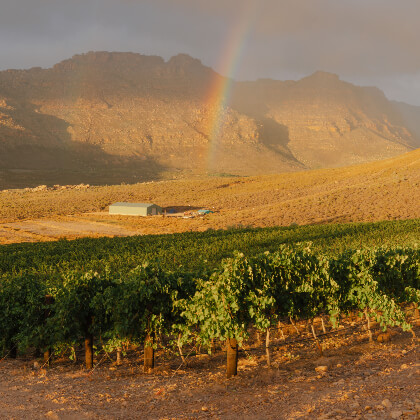
Understanding the history of Cape Town wine involves immersing oneself into a fascinating story filled with rich culture, exploration, and of course, exceptional flavours. For all wine enthusiasts and historians alike, this journey traces back to the arrival of Europeans on South African soil. It is not just a story of how wine production took roots in Cape Town, but also how it evolved to become a key part of South Africa’s cultural heritage and economy.
For the everyday drinker, a glass of wine often represents enjoyment or celebration. Step back in time, though, and you’ll discover a deeply woven narrative of Cape Town’s wine history where every sip hints at centuries of tradition, cultivation and innovation. Let’s embark on this journey to get a better understanding.
The Early Beginnings of Cape Town Wine
The story of wine in Cape Town dates back to 1652 with the arrival of Dutch Commander Jan van Riebeeck – the man credited for producing the first Cape wine. Importantly, the fledgeling colony needed wine as supplies for ships passing on the long route between Europe and the East Indies. An initial experiment in domestic wine production was ordered, which gave birth to a thriving industry later.
However, early efforts to produce wine were not completely successful. The unfamiliar climate and soil made viticulture a challenging task. The introduction of more experienced French winemakers in the late 1600s drastically improved the wine’s quality, heralding a new era of winemaking in the region.
Moreover, the Dutch East India Company played a crucial facilitative role, setting up the Free Burgher system. This allowed citizens to own and cultivate land, effectively leading to an increase in vineyards and wine production.
The Constantia Era and Beyond
The 18th century witnessed the rise of Constantia, a vineyard established near Cape Town, recognized for producing one of the world’s greatest wines. Owned by the Cloete family, its exotic, sweet wine delighted numerous dignitaries and gained international fame.
However, the late 1800s saw a downturn for Cape Town’s wine industry. Market competition, phylloxera epidemic and economic recession resulted in many vineyards being replaced by more profitable crops. The challenges led to the establishment of the co-operative movement allowing growers to pool resources and knowledge.
Fortunately, the later part of the 20th century saw a resurgence as international markets opened up post-apartheid. With the opportunity to export and the advent of modern winemaking techniques, Cape Town’s wine industry flourished once more.
Modern Winemaking in Cape Town
Today, Cape Town enjoys a solid reputation for producing a broad range of wines that express the diversity of its regions. This is enabled by the combination of the city’s unique terroirs and the innovative approaches adopted by local winemakers.
What sets the Cape Town wine industry apart is its commitment to sustainability. These wineries understand the importance of respecting the land and ensuring its longevity to continually produce quality wines. Another notable trend is the rise of boutique wineries, which focus on creating highly distinctive wines.
Moreover, wine tourism has taken a leap, with visitors flocking to experience the story behind every glass. Not to mention, the wine tasting experience, which has become a cultural activity, promising an unforgettable immersion into flavour, aroma, and tradition.
In Conclusion
In essence, the history of Cape Town wine is a captivating cycle of rise, fall, and revitalisation, shaped by numerous local and global influences. It reiterates the resilience of the city’s winemakers and their ability to adapt to various challenges while upholding the legacy of quality and tradition.
In a deeper sense, it’s not merely about the wine itself. It’s about the people, their passion, the land, and the heritage that breathes life into every bottle. We invite you to explore this rich history further by indulging in a good glass of Cape Town wine. Not only does it promise a sensory journey but also a connection to the fruitfulness of South Africa’s soil, the skill of its people, and the stories etched in its history.
